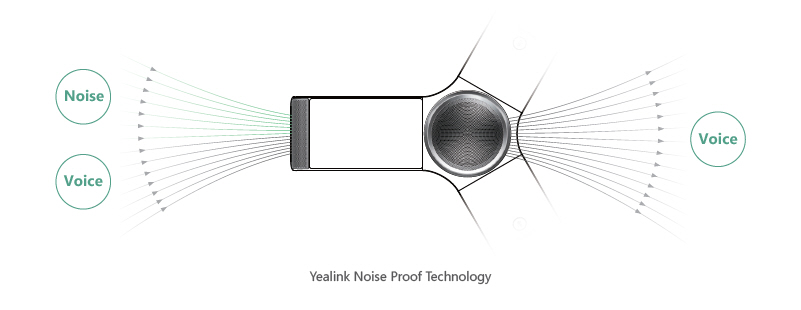Introduction
In an era where communication is paramount to both personal and professional interactions, the evolution of telephony has seen a remarkable transition from traditional phone systems to more sophisticated and efficient methods. One such innovation that has revolutionized the way we communicate is the VoIP Phone System. But what exactly is VoIP, and how does it work? This article aims to provide a comprehensive overview of VoIP phone systems, exploring their functionalities, benefits, challenges, and much more.
Whether you're a business owner looking to upgrade your communication infrastructure or simply someone interested in understanding modern telephony better, this guide will serve as an essential resource for you.
Understanding VoIP Phone Systems
What is a VoIP Phone System?
A VoIP Phone System, or Voice over Internet Protocol, allows users to make voice calls using the internet instead of traditional telephone lines. By converting voice signals into digital data packets transmitted over IP networks, VoIP enables seamless communication across vast distances.
How Do VoIP Phone Systems Work?
The technology behind VoIP involves several components that work together to facilitate communication:
Analog-to-Digital Conversion: When you speak into a VoIP phone, your voice is converted into digital data. Data Transmission: This digital data is then sent over the internet as packets. Receiving End: The recipient's device converts these packets back into voice signals.
Key Components of a VoIP Phone System
- VoIP Phones: These can be hardware devices or software applications (softphones) that facilitate calls. Internet Connection: A stable broadband connection is essential for clear communication. VoIP Service Provider: Companies like Skype, RingCentral, and Vonage offer subscription services for making calls.
Benefits of Using VoIP Phone Systems
Cost-Effectiveness
One of the primary advantages of implementing a VoIP Phone System is its cost-effectiveness. Unlike traditional phone systems that charge hefty fees for long-distance calls, VoIP allows for free or low-cost calling options.
Flexibility and Mobility
With a VoIP system, users can make and receive calls from anywhere as long as there's an internet connection. This flexibility enhances remote work capabilities and allows businesses to operate more efficiently.
Enhanced Features
Modern VoIP systems come packed with features like voicemail-to-email transcription, call forwarding, video conferencing capabilities, and integration with CRM tools.
Challenges Associated with VoIP Phone Systems
Quality of Service (QoS)
While many enjoy crystal-clear calls through their VoIP Phones, others may experience issues like lag or dropped calls if their internet connection isn't reliable enough. Quality control measures are critical for ensuring seamless communication.
Security Concerns
The digital nature of VoIP systems makes them susceptible to hacking attempts and other cyber threats. Implementing encryption protocols helps mitigate these risks but requires careful planning and investment.
Types of VoIP Solutions
Hosted vs On-Premises Solutions
- Hosted Solutions: Managed by third-party providers; ideal for businesses that want minimal IT intervention. On-Premises Solutions: Require physical servers on-site; suitable for companies that prefer total control over their communication infrastructure.
Residential vs Business Solutions
Residential solutions typically focus on basic calling functionalities while business http://simonyedi084.raidersfanteamshop.com/voip-phone-systems-vs-traditional-phones-which-is-right-for-you solutions offer advanced features tailored for enterprise needs.

Choosing the Right VoIP Phone System
Assessing Your Needs
Before selecting a VoIP Phone System, it's crucial to assess your specific needs—consider factors like call volume, required features, user mobility, etc.
Researching Providers
Look for reputable service providers that offer comprehensive support packages along with competitive pricing models. Read customer reviews and testimonials to gauge their reliability.
Setting Up Your VoIP Phone System
Equipment Requirements
To get started with a VoIP system, you'll need compatible devices such as:
- IP phones Headsets Routers with QoS settings enabled
Installation Process
Choose your provider and sign up for an account. Set up your network configuration based on provider guidelines. Connect your devices and test the system!Understanding Call Quality in VoIP Systems
Factors Affecting Call Quality
Multiple elements can impact call quality in VoIP Phones, including:
- Bandwidth limitations Network congestion Hardware quality
Monitoring Call Quality
Regularly monitoring call quality using tools provided by your service provider can help identify issues before they become significant problems.
Integrating Other Technologies with Your VoIP System
CRM Integration
Many businesses benefit from integrating their VoIP Phone Systems with Customer Relationship Management (CRM) software to enhance customer interactions.
Unified Communications
A unified communications approach combines various forms of communication—voice calls, emails, chats—into one platform improving efficiency across teams.
FAQ Section
What is the main advantage of using a VoIP system?- The primary advantage lies in cost savings compared to traditional phone services while offering numerous additional features.
- In many cases yes! However, you may need adapters (ATA) if you're using analog phones.
- Absolutely! A stable high-speed internet connection significantly impacts call quality.
- Common issues include eavesdropping attacks and denial-of-service attacks which can disrupt service availability.
- Consider factors such as pricing models, available features, customer support options, and user reviews when selecting a provider.
- It's advisable to read terms carefully as some providers may have fees related to installation or premium features.
Conclusion
As we've explored throughout this article titled "Understanding VoIP Phone Systems: A Comprehensive Overview," it’s evident that these systems have transformed modern telecommunications dramatically. From cost savings and flexible mobility to advanced features suited for both residential users and businesses alike—VoIPs represent an innovative leap forward in connectivity options available today.

By considering all aspects—from setup requirements to security concerns—you'll be well-equipped in navigating the world of Voip technology effectively! Whether you're looking at adopting this solution personally or professionally—the potential benefits are enormous!
Embrace the future of communication with confidence by understanding how it works!
This article serves not only as an informative guide but also encourages readers to take actionable steps towards enhancing their own communication strategies through informed choices about adopting VoIp technology effectively!